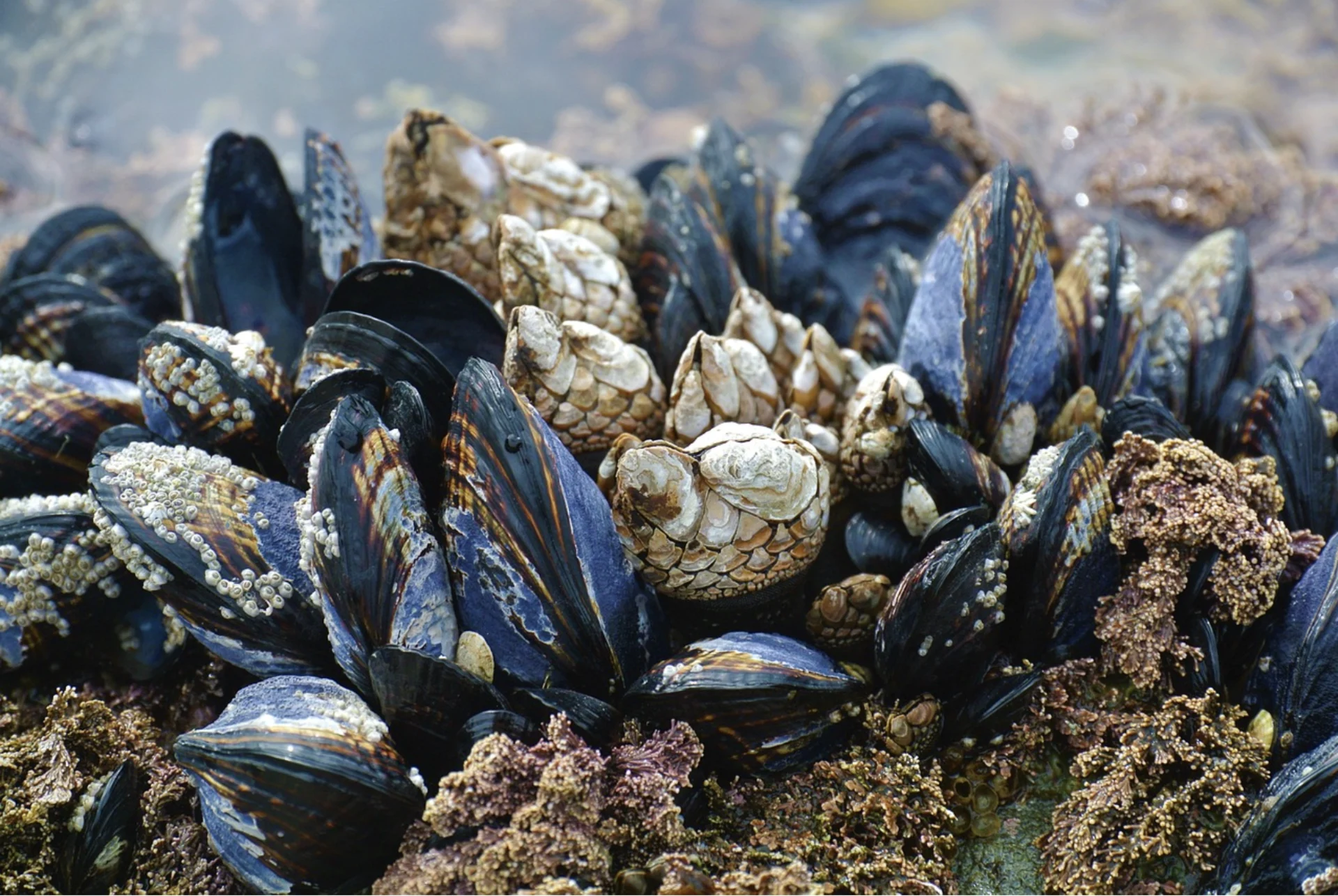
'Razor-sharp shells': Invasive mussels are threatening Okanagan's waterways
The threat of invasive mussels has led the Okanagan Basin Water Board (OBWB) to propose a potential temporary ban on all out-of-province boats entering B.C.'s waterways.
James Littley, deputy administrator for the OBWB, said two species of freshwater mussels — zebra and quagga mussels — could be catastrophic to lake and river systems if stringent measures aren't put in place to keep them out of the province.
"These mussels are fundamentally going to alter our way of life here in the Okanagan" Littley told Radio West host Sarah Penton.
"They leave razor-sharp shells on beaches so you can no longer walk on the beach in your bare feet. They change the water chemistry so they'll cause toxic algae blooms. They collapse the food chain for fish and other things in the water."
He says the thumbnail-sized mollusks can damage water infrastructure.
If not intercepted, zebra and quagga mussels could cost B.C. anywhere between $64 million to $129 million annually, according to estimates released by the province earlier this year.
"If we can't prevent them, it's going to be impossible to contain them or eradicate them," said Littely.

Zebra mussel shells on the shores of Lake Winnipeg. An Ontario researcher says the invasive mussel can cost millions of dollars every year to control. (Bartley Kives/CBC)
SEE ALSO: New invasive aquatic species found in Nova Scotia
So far, the invasive mussels have not been discovered in B.C. waters, but the threat is real, and perilously close, says Littley.
Last month, officials in Idaho said quagga mussels were found in the Snake River, the largest tributary of the Columbia River.
OBWB officials are concerned that watercraft coming into the province might be infested with quagga mussels.
"They are small and can hide in the nooks and crannies of boats and can be easily transported," said Littley.
Concerns over economic impact of proposed moratorium
Littley briefed Vernon council last week on the impacts of invasive mussels, and asked council to support the board's call for a moratorium.
Coun. Brian Guy said he supports the temporary ban.
"The consequences are gigantic. This threat gets bigger and closer," he said during the meeting.
Coun. Kari Gares expressed concern about the economic impact of a moratorium, saying it would be "a knife to small business."
"We are a community that relies on tourism," Gares said. "The ban would decimate our tourism industry when we are just recovering from the pandemic."
Gail Wallin, executive director of the Invasive Species Council of B.C.(ISCB), recommends inspecting all boats entering the province.
"We need to make sure that there is a mandatory watercraft inspection program that stops all watercraft at the inspection," she said in a telephone interview with CBC News. "That way we can still support our tourism industry without entirely banning the boats."
There are eight inspection stations in B.C., two of which are roving stations.

In 2015, the province created the Invasive Mussel Defence Program to detect and respond to high-risk mussels entering B.C.
Littley, however, says there are significant gaps in inspections.
"The inspection sites aren't operating around the clock. If a boat comes during off-hours, they can get into B.C. without being stopped at the inspection station," he said. "There also aren't enough inspectors deployed on site."
In a 2023 summer status report on the invasive mussel program, the B.C. Conservation Officer Service (BCCOS) acknowledged that recruiting and retaining new inspectors remains a challenge.
CBC News reached out to the BCCOS and B.C.'s Ministry of Water, Land and Resource Stewardship for comment on the proposed moratorium but didn't hear back before deadline.
Zebra and quagga mussels are native to the Black and Caspian seas in southeastern Europe, according to Fisheries and Oceans Canada, and first entered the Great Lakes in the 1980s via ballast water released from commercial shipping vessels.
Peter Stoett, a faculty member of Ontario Tech University in Oshawa, Ont., who co-authored a report on invasive species, said last month that zebra mussels in the Great Lakes have driven native mussel species to extinction and cost millions of dollars every year to control.
"We hope we can protect the lakes and rivers of B.C. for our children and grandchildren," Littley said.
WATCH BELOW: One billion seashore animals cooked to death in B.C. heat wave
This article, written by Shaurya K Kshatri, was originally published for CBC News on Nov 02, 2023.
With files from Radio West and The Canadian Press
Header image: Pixabay/donieve. Stock photo of mussels on a beach.









